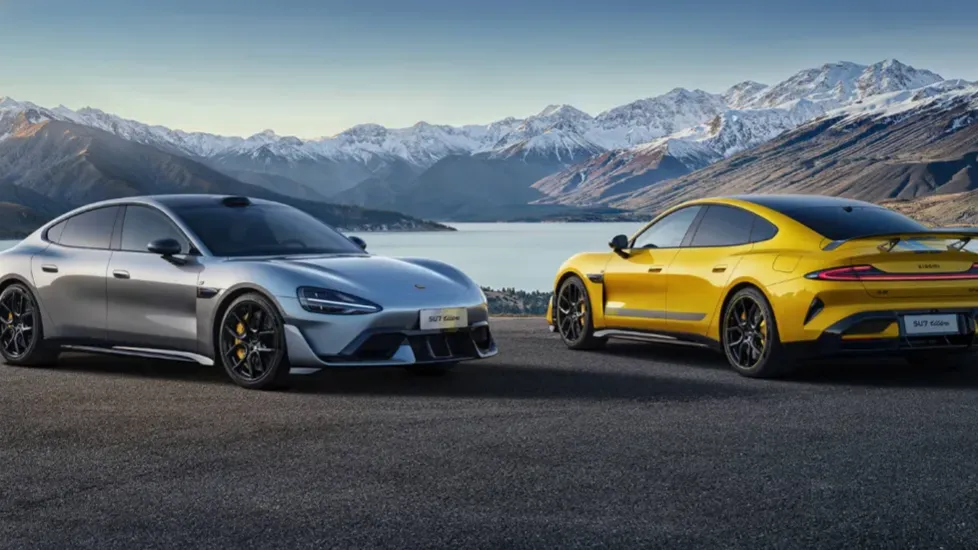Source: Huawei HIMA
In September, Huawei’s HIMA (Harmony Intelligent Mobility Alliance) brands delivered 52,916 NEVs across all its models, pushing its cumulative deliveries above 950,000 units.
In the same month, Xiaomi announced it had delivered over 40,000 units of its EV models in a single month — a record high for the company.

Source: Xiaomi
While both companies are having a lot of success in China at the moment, they took very different approach to penetrate the EV market. Huawei’s HIMA alliance takes a collaborative approach as Huawei does not itself manufacture vehicles and does not sell them under a single brand.
Instead, it leads the Harmony alliance, in which Huawei provides vehicle intelligence, software, design input, and quality oversight, while partner automakers supply the physical manufacturing. Under HIMA, brands such as AITO, Luxeed, Stelato, Maextro, and SAIC’s upcoming brand are part of the ecosystem.
Within this ecosystem, Huawei’s flagship is the AITO series. The AITO M9 is a full-size SUV available in multiple seating and drivetrain options, including extended-range and battery-electric versions. The AITO M8 is a mid-to-large SUV that has performed strongly in the 350,000+ yuan market segment.
Advertisement – Continue scrolling for more
More recent additions include the Luxeed S9T and the Stelato S800, which both entered the market in 2025 and have already begun deliveries and seen strong order volumes.
HIMA says it has built a “five realms, ten cars” product matrix under the broader Harmony ecosystem, with its collective order registrations in September exceeding 110,000 units.
In contrast, Xiaomi chose a more vertically integrated route. Xiaomi builds and sells EVs under its own brand, combining its consumer electronics heritage with automotive ambitions.
Advertisement – Continue scrolling for more
Its current portfolio includes the Xiaomi SU7, a sedan that serves as the flagship model in the lineup. A higher-spec version, the Xiaomi SU7 Ultra, offers upgraded performance and features. Xiaomi has also launched the Xiaomi YU7, an SUV produced in its own Beijing F2 factory, with preorders and deliveries beginning in late 2025.
Xiaomi has also expanded its retail and service footprint. In September it added 32 new stores, bringing its total to 402 showrooms across 119 cities. By the end of September, its service network included 209 outlets covering 125 cities.
By contrast, Apple’s Project Titan has been plagued by delays and strategic shifts. Though Apple has reportedly invested heavily, it has abruptly cancelled the project in 2024.
Advertisement – Continue scrolling for more
Huawei and Xiaomi, by delivering vehicles — Huawei through partnerships and Xiaomi under its own brand — have achieved in a few years what Apple has struggled to accomplish in a decade: real customer deliveries, market traction, and ecosystem integration.
Each of these Chinese entrants is proving a distinct, viable path, and their progress highlights just how competitive and fast-moving the EV sector has become.
Advertisement – Continue scrolling for more
